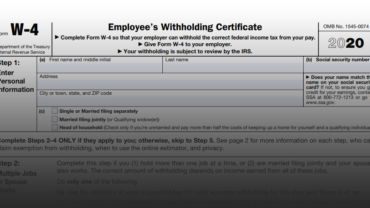For 2019, the maximum fair market value (FMV) of a vehicle (including cars, vans and trucks) for use with the vehicle cents-per-mile and fleet-average valuation rules is $50,400.
The maximum value of an employer-provided vehicle (including cars, vans and trucks) first made available to employees for personal use in calendar year 2019 for which either the vehicle cents-per-mile valuation rule or fleet-average valuation rule may be used is $50,400 [Notice 2019-34, 2019-22 IRB, 5/8/19].
If an employer provides a car to an employee that is available for personal use, the value of the personal use must generally be included in the employee’s income and wages. The personal use may be valued using the cents-per mile or fleet-average valuation rules for the 2019 calendar year.
Notice 2019-8
Due to tax law changes in the Tax Cuts and Jobs Act (TCJA), the maximum dollar limitations on the depreciation deductions for passenger automobiles significantly increased and the way inflation increases are calculated changed. Notice 2019-8 noted that the IRS and the Treasury Department intended to amend regulations to incorporate a higher base value of $50,000 to be adjusted annually (see IRS Announces 2018 FMV Limits for Valuation of Employer-Provided Vehicles 12/24/18).
New Notice
Notice 2019-34 provides that for 2019, the maximum fair market value (FMV) of a vehicle (including cars, vans and trucks) for use with the vehicle cents-per-mile and fleet-average valuation rules is $50,400.
Because current regulations have not yet been updated to reflect the changes under TCJA, the IRS provides relief to taxpayers in the form of interim guidance for 2019 in the notice. The IRS intends (along with the Treasury Department) to revise the rules for the 2018 and 2019 tax years.
The IRS anticipates that when the regulations have been amended, the maximum value for use of the cents-per-mile and fleet-average valuation rules will be published annually with the standard mileage rates for business, charitable, medical, and moving expense purposes.
- If an employer did not qualify to adopt the vehicle cents-per-mile vehicle cents-per-mile valuation rule on the first day on which a vehicle was used by an employee of the employer for personal use because, under the rules in effect before 2018, the vehicle had a FMV in excess of the maximum permitted, the employer may first adopt the vehicle cents-per-mile valuation rule for the 2018 or 2019 tax year based on the maximum FMV of a vehicle for purposes of the vehicle cents-per-mile valuation rule ($50,000 in the 2018 tax year and $50,400 in the 2019 tax year) provided in Notice 2019-8, 2019-3 IRB and Notice 2019-34, 2019-22 IRB, respectively.
- Similarly, IRS intends that the proposed regs will further provide that if the commuting valuation rule was used when the vehicle was first used by an employee of the employer for personal use, and the employer did not qualify to switch to the vehicle cents-per-mile rule on the first day on which the commuting valuation rule was not used because, under the rules in effect before 2018, the vehicle had a FMV in excess of the maximum permitted, the employer may adopt the vehicle cents-per-mile valuation rule for the 2018 or 2019 tax year based on the maximum FMV of a vehicle for purposes of the vehicle cents-per-mile valuation rule ($50,000 in the 2018 tax year and $50,400 in the 2019 tax year) as provided by Notice 2019-8, 2019-3 IRB and Notice 2019-34, 2019-22 IRB, as applicable. An employer that adopts the vehicle cents-per-mile valuation rule must continue to use the rule for all subsequent years in which the vehicle qualifies for use of the rule except if the use of the vehicle qualifies for the commuting valuation rule, then the employer may switch to the commuting valuation rule for any year during which use of the vehicle qualifies for the commuting valuation rule.
- Finally, the IRS noted its intention in Notice 2019-34, 2019-22 IRB that it will revise regulations to permit an employer to adopt the fleet-average valuation rule for the 2018 or 2019 tax year if the employer did not qualify to use the fleet-average valuation rule prior to Jan. 1, 2019 because the maximum value limitation prior to 2018 could not be met.
The IRS anticipates that when the regulations have been amended, the maximum value for use of the cents-per-mile and fleet-average valuation rules will be published annually with the standard mileage rates for business, charitable, medical, and moving expense purposes.
Until revised final regulations are published taxpayers may rely on the interim guidance provided in Notice 2019-34.
Comment Period
Comments on Notice 2019-34 are being accepted through July 29, 2019, and may be submitted electronically via the Federal eRulemaking Portal (type IRS-2019-34 in the search field) or by mail to: CC:PA:LPD:PR (Notice 2019-34), Room 5203, Internal Revenue Service, P.O. Box 7604, Ben Franklin Station, Washington, DC 20044.
Try payroll products on Thomson Reuters Checkpoint free for 30 days!
See why thousands of payroll professionals trust Thomson Reuters for their payroll information needs. Because we know your time and money is valuable, we offer trial access to some of our most popular payroll products.
Shop now for payroll solutions designed to help you find trusted answers quickly.








